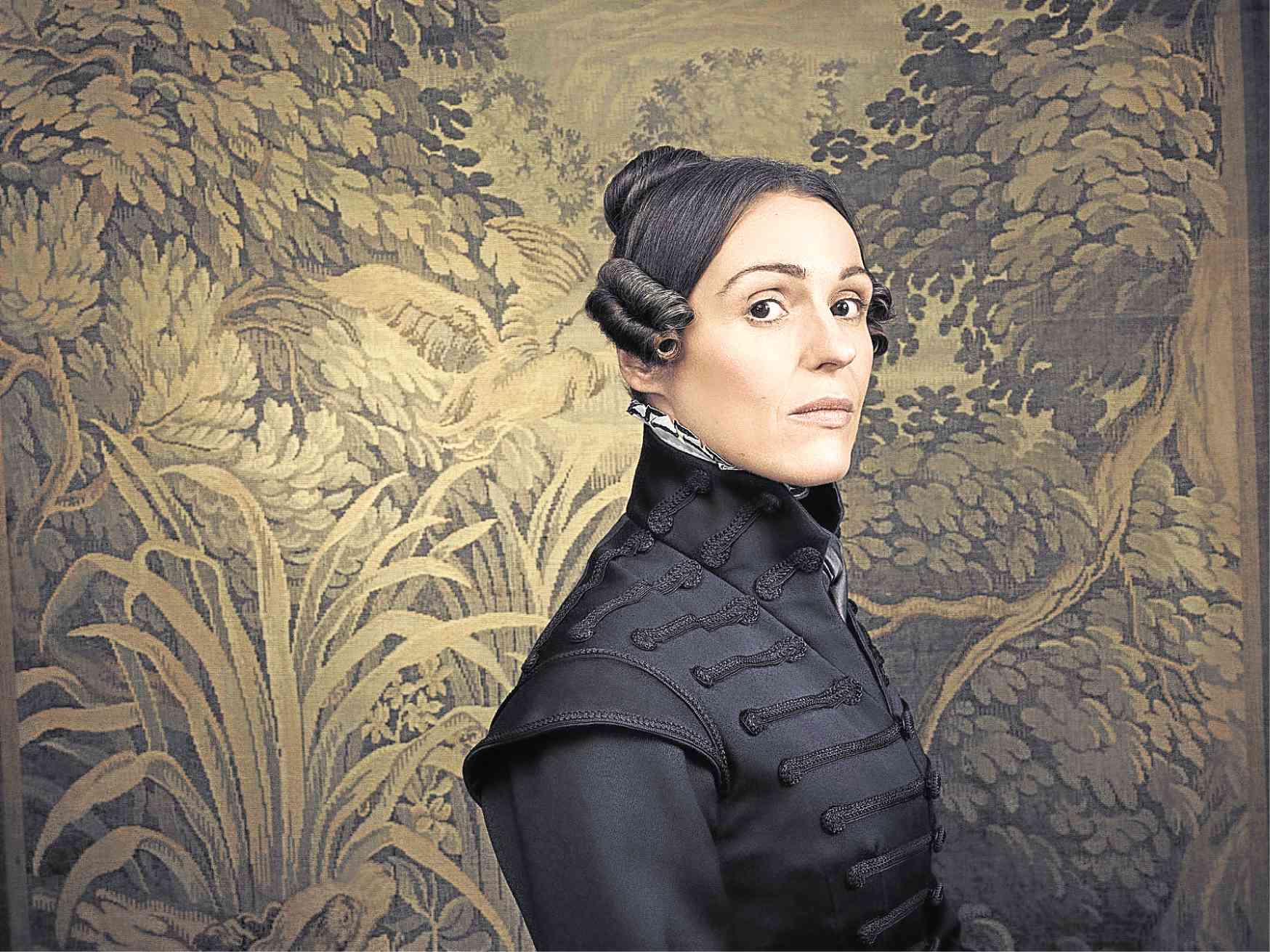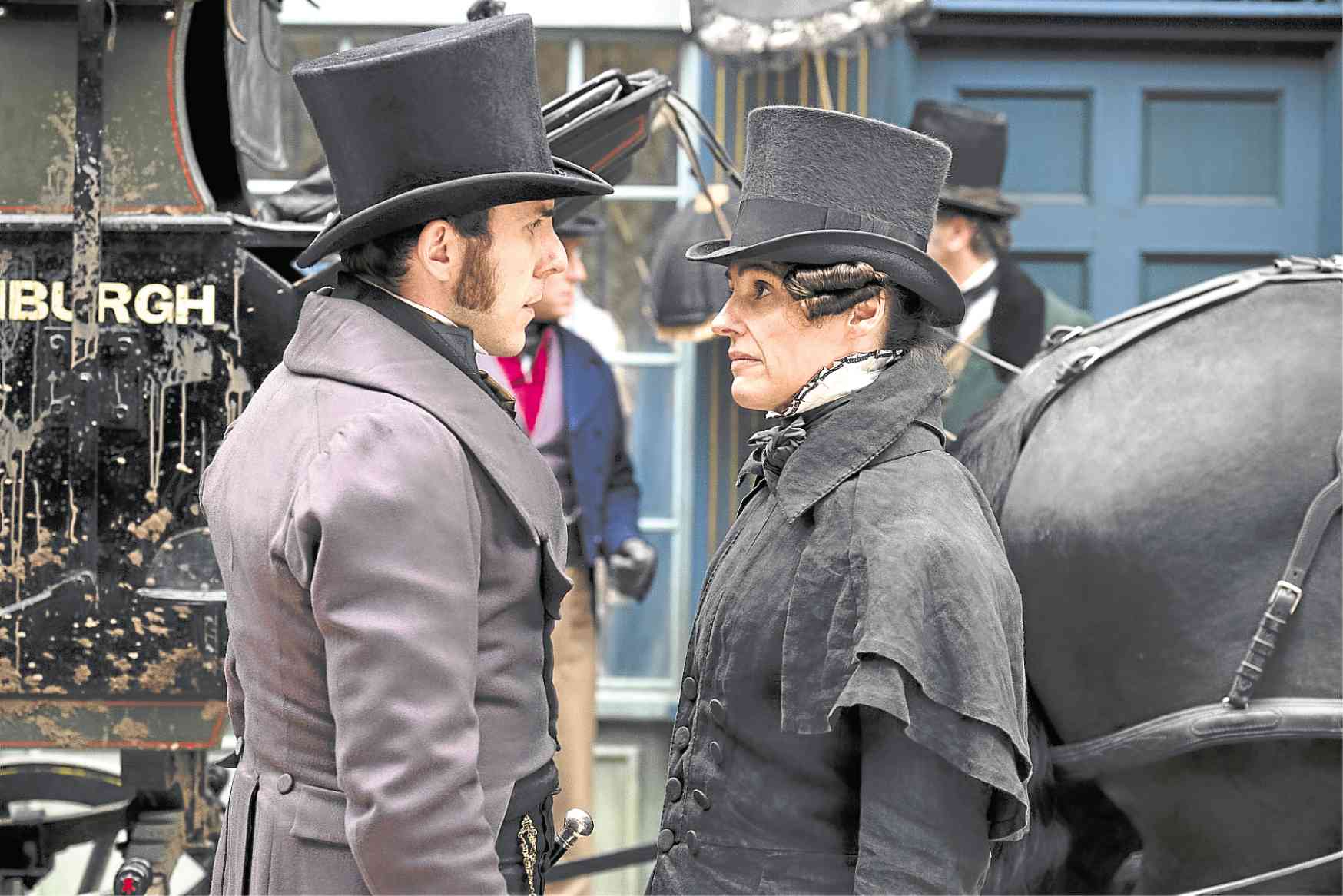‘Gentleman Jack’: HBO series deciphers coded diaries of ‘first modern lesbian’
Anne Lister (Suranne Jones), the lead character of HBO’s 1832-set series “Gentleman Jack,” isn’t afraid to buck society’s expectations at every turn.
But what makes Lister’s true-to-life tale particularly significant is how the globe-trotting, openly lesbian landowner manages to assert herself—from her rights to her sexual needs—at a time when women aren’t even allowed to vote.
After all, women’s suffrage in the United Kingdom was only approved in 1918—some 78 years after Lister’s death.
The series, which begins its eight-episode season on HBO Go at 10 a.m. tomorrow, is an enlightening and delectable slow burn.
Set in quickly evolving Halifax during the Industrial Revolution, the period drama shows how the 41-year-old “fella in a frock” struggles to turn around the dwindling fortunes of her family’s coal mines.
Article continues after this advertisementThereafter, she reinvigorates Shibden Hall, her faded ancestral home, by setting her sights on marrying well—but, to her conservative community’s horror, not to a man!
Article continues after this advertisementThe object of Lister’s romantic affection is 29-year-old Ann Walker (Sophie Rundle), a painfully shy and psychologically fragile manufacturing heiress who is being pressured by “well-meaning” friends and family members to accept the marriage proposal of clergyman Thomas Ainsworth (Brendan Patricks), a widower who uses his boy-next-door charm to conceal his predatory impulses.
Ainsworth’s fortune-hunting boldness isn’t Lister’s only source of grief and distraction: She learns that her fierce business rivals, brothers Christopher (Vincent Franklin) and Jeremiah Rawson (Shaun Dooley), have been stealing from her coal mines in her absence.
The stubborn and independent-minded Lister, who prefers to dress in black from head to toe, often charms her way into high society—which, in turn, expects her to conform to its age-old practices and traditions.
Lister, who wants to stay “true to her nature,” sees traveling as a way to run away from a world that only sees how women “ought to behave,” and “not how clever they are.”
Ironically, it’s Lister’s cleverness that allows her to run rings around polite society.
She’s willing to put her neck in the noose to fight for her beliefs. Her family, composed of her sister Marian (Gemma Whelan of “Game of Thrones”), her increasingly senile father Jeremy (Timothy West) and Aunt Anne (Gemma Jones), are “laid-back” supporters of her sexual proclivities—unfortunately, they’re her only cheering squad and support group.
But as her relationships with family members, servants, tenants and “discreet” female lovers demonstrate, Lister isn’t one to easily acquiesce to norms that prevent her from pursuing her own happiness, not to mention endeavors that bring her personal satisfaction.
The “closeted” women she had intimate relationships with often referred to her as “Fred” or “Gentleman Jack.” Naturally, she suffered harassment for her sexual choices.
We marvel at the series’ ability to bring Lister’s story to pulsating life because its narrative strands have been merely pieced together from the 4-million-word diaries that she kept until her death at age 49. She began writing them at age 15.
However, “deciphering” the diaries’ content hasn’t been easy. The degree of difficulty was made tougher by the fact that one-sixth of them—particularly those surrounding the intimate details of Lister’s romantic and sexual relationships with various women—was written in a series of codes that inventively combined the Greek alphabet with zodiac signs, punctuation marks, algebra and other mathematical symbols.
Eight years ago, Lister’s diaries were deemed significant enough to be added to the register of the Unesco Memory of the World Program, which cited her story as a “comprehensive and painfully honest account of lesbian life and reflections on her nature.”
As the program deftly noted, the so-called “first modern lesbian’s” diaries “continue to shape the direction of gender studies in the UK” and women’s history in general.


